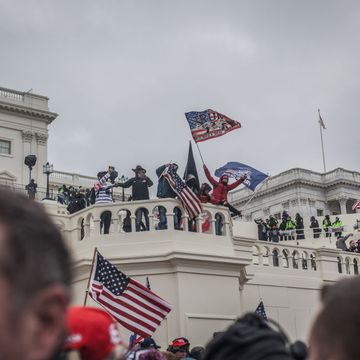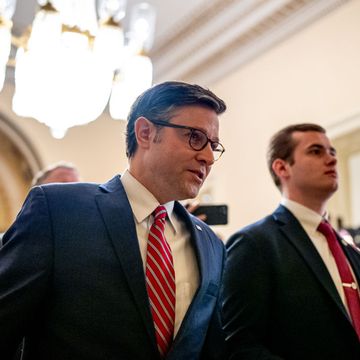In the July, 2003 Esquire, Andy Langer sat down and interviewed Steve Jobs. Read the original feature here.
Last night, I listened to Steve Jobs describe me as a primitive thinker. I also relived the awful, awkward silence between when he announced our interview was over and walked around the conference table, reached for my recorder, and shut it off. Inside that recorder was a 110 minute Maxwell XLII cassette, that I just listened to for the first time in a decade because, for all the razzle-dazzle of Apple's media presentation - the watch, of oversized phones and, yeah, U2 - I don't think any of us could help but miss the lil' bastard.
And now I know for sure that it's exactly at the 19-minute point, eleven years ago, that Steve Jobs asks me to leave his office. If you'd asked me last week, I'd have guessed we managed at least 30-minutes together. The tape , recorded in April of 2003, the day after Jobs announced the iTunes Store, proves me wrong.
My takeaway from hearing it again? I love that I have this tape. I love that it predates the iPhone, Apple TV, and, now, the Apple Watch. I got a little kick out of hearing his voice again. But ultimately, what's not on the cassette is probably more interesting than what is.
Let's rewind.
Since I'm not sure where he's going to sit, the tape isn't rolling when Jobs walks into the conference room. And while I don't suspect Steve Jobs walked into many rooms without a well-defined purpose, these were nonetheless his first words to me:
"Why are we here?"
I immediately recognized it to be rhetorical, mostly because he'd put some stank on it. Actually, a lot of stank. He wasn't looking for a reminder. He was asserting dominance. I believe the term for people who assert dominance when they already have the obvious upper hand is "bully". Mostly, I suspect his question was designed to remind me that press, even what would be his first major interview in years, wasn't something he spent a lot of time thinking about. Then he picked a chair six seats away from me at a giant otherwise empty conference table. I suppose he wanted to drive the point home that we weren't going to be friends.
If Jobs was particularly edgy that day, it's probably because the next-day press surrounding the launch of the iTunes Music Store was less than glowing. As I suggested in the introduction I wrote for what would become our Q&A in the July 2003 issue of Esquire, Monday-morning quarterbacks in both the technology and music sectors had already put Jobs on defense. Conventional wisdom, they said, suggested young music fans accustomed to free online music weren't going to be excited about paying 99 cents a song. And if we know anything about Steve Jobs it's that he loathed conventional wisdom.
Here's what's also not on the tape: the pre-interview, back-and-forth between Esquire's editors and Apple's in-house publicists. At first, they'd agreed to set aside an hour. Then we were told it might be shorter. In fact, the way it was relayed to me at the time, by way of warning from an editor, was that an Apple flak had said this: "Nobody needs more than 15 minutes with a great man."
Even so, they promised not to schedule anything too close to the interview. They suggested if he liked how it was going, he'd stay. And were promised he was ready to talk about "innovation, Apple, and the music industry." To be fair, for the most part, we got that done.
In the conversation on the tape, which I can confirm now was edited only ever so slightly for space, Jobs comes off as feisty, brash, and determined. Thus, it sounds and reads a lot like we remember Steve Jobs. But what I also hear now is exactly where it went sideways: Jobs couldn't help but talk trash about his new partner's previous efforts to get into the online music business. I suspect he saw them as threats… What would stop the major labels from pulling their music off iTunes a few years later and going it on their own? I also suspect he regretted talking that trash right after it left his mouth. And when we talked about the specifics of the arrangements he'd cut with the labels - who owned what rights - as strange as it is to say about Steve Jobs, he seemed in over his head.
I believe he was ready to talk about the specifics of how the iTunes Store worked. I believe he wanted to regurgitate the presentation he'd given 24 hours earlier. And I remember just how unhappy he was when part of my answer to "Why are we here?" included a bit about, since we wouldn't be on newsstands for a few months, how I'd love to talk today about anything other than the nuts and bolts of the store, which I explained would be old news by the time my piece ran. And if we know anything about Steve Jobs it's that he loathed a product he created being classified in any way shape or form as old news.
In Steve Jobs, Walter Isaacson's authorized Jobs biography, my name pops up in a quick reference to the interview. Friends read the book and invariably ask about that day in 2003. And what I tell them- and what I didn't need to rehear the tape to remember vividly - is the overwhelming feeling I had that day that I was in presence of someone singular. You've heard people describe how Bill Clinton can change every molecule of a room he's in? I've seen him do it. I've also seen Beyoncé flip a dinner party on its head. And back in college, I spent four hours some fifteen feet from minister Louis Farrakhan. There's people that can fuck up a room. But with Jobs, it was almost the reverse to Clinton. Everything got a few shades darker... A little less certain. I'm convinced that if I was rattled, it's not because he was Steve Jobs, it's because Steve Jobs had an unpleasant aura. But this isn't news. Instead, it's just a foundation of what makes him one of the most compelling, complex figures of our time: he was singularly unpleasant and brilliant, bored and innovative.
He was right about the iTunes Store. It's still the "best product" for buying music online. And it's where U2 - who could've gone anywhere to give away their new album- choose to reach half a billion people in five seconds. Watching yesterday's Apple presentation, I was struck by Jony Ive's declaration about Apple's "compulsion to take incredibly powerful technology and make it accessible, relevant and ultimately personal." And I think about the most honest, most nonchalant, thing Jobs says to me on the tape: "We're just Apple." Eleven years ago I'm not sure I appreciated the power of that declaration. I think maybe the folks at Apple knew something I had to learn the hard way: that sometimes 19 minutes is all you need with a great man.













